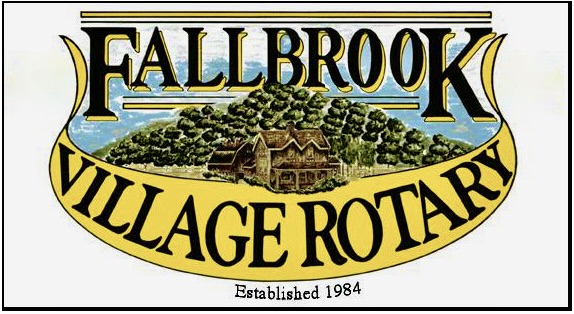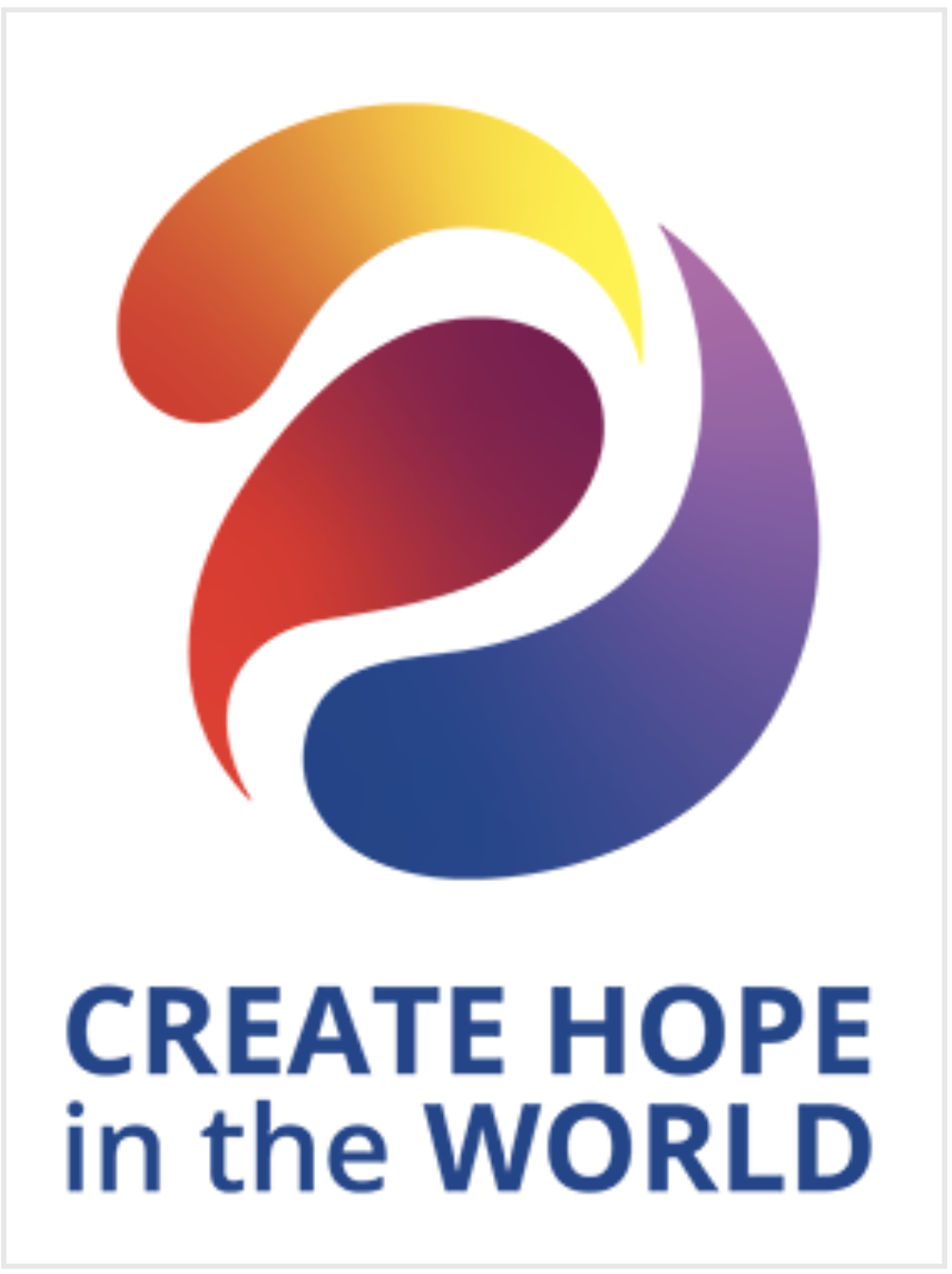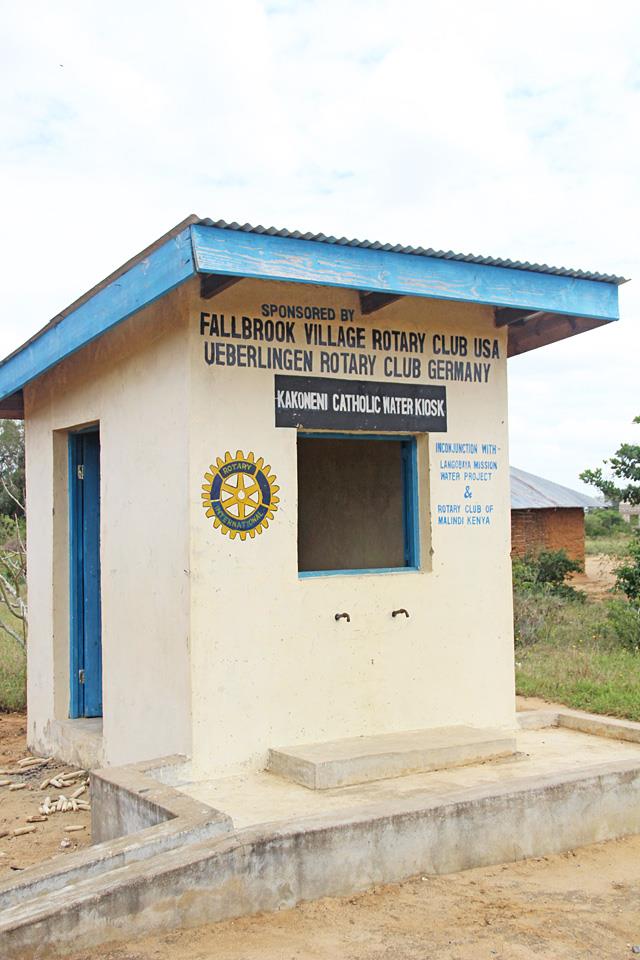
Both Doug Boggs and Chuck Gunther worked on the Water Project in conjunction with Fallbrook Village Rotary, Rotary Malindi in Kenya, Uberlingen Rotary Club Germany, and Rotary International.
GUEST SPEAKER: Doug Boggs & Chuck Gunther – Kenyan Water Project in cooperation with Fallbrook Village Rotary, Uberlinger Rotary Germany, Rotary Malindi, and Rotary International
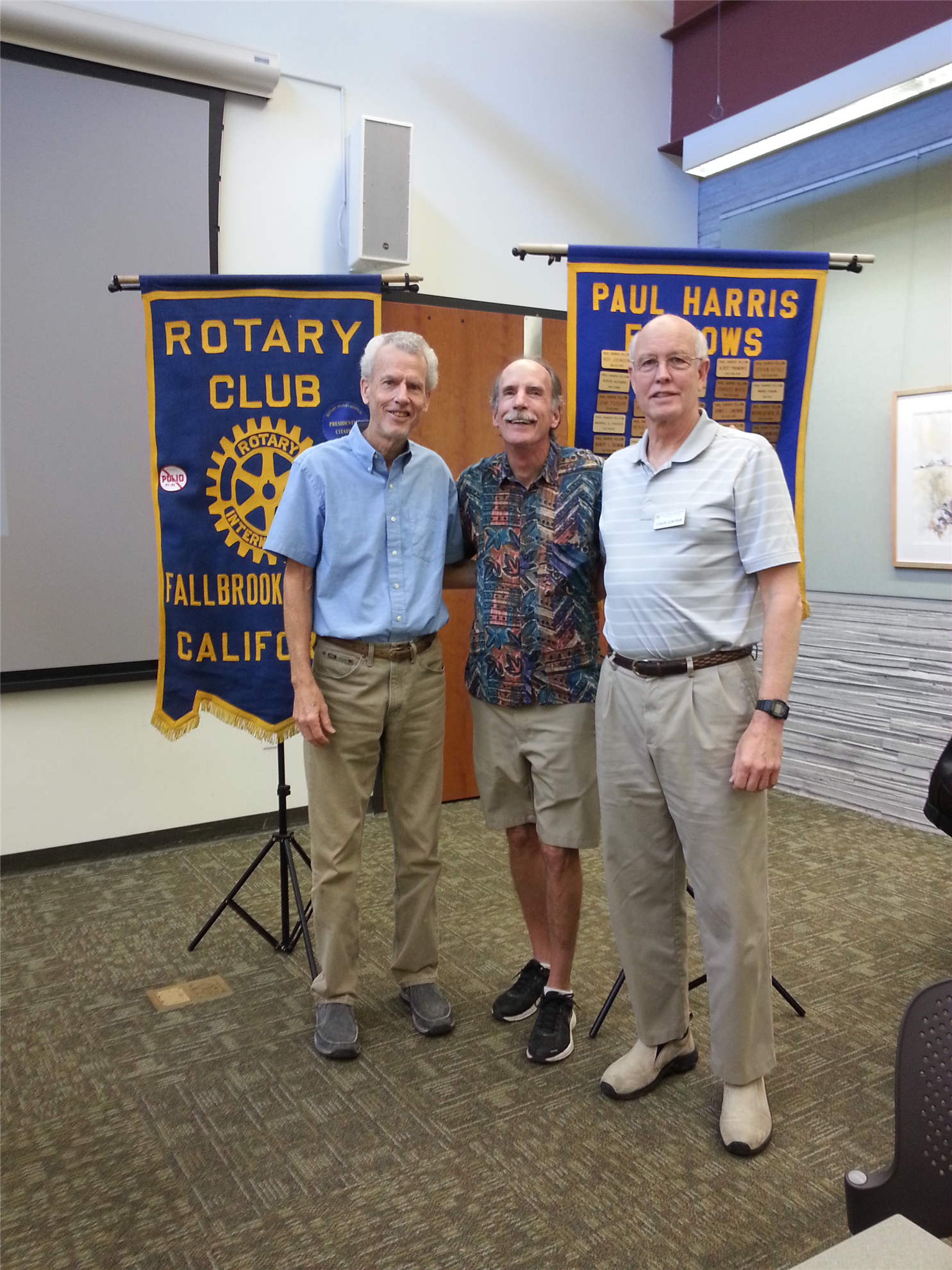
Doug Boggs, Gordon Stone, Chuck Gunther
Doug Boggs is the President and founder of Lango Baya Mission, which began working in Kenya in 2007. The organization has grown from assisting nine orphans and their caregivers in 2007 to over 400 children and families at present. Lango Baya Mission focuses on education, food security, training and projects to assist communities in becoming more self-reliant. Doug travels to the mission in Kenya once or twice a year. Before founding the Mission, Doug worked in International Sales Management, Publishing and Teaching.
Chuck Gunther is a Board Member and Vice President of Lango Baya Mission. Chuck has assisted with the business structure and growth of the Mission since 2008, and travels to Kenya regularly. Before coming to the Mission, Chuck founded the first Nuclear Pharmacy in the State of California, creating the Federal and California Laws to allow a new diagnostic to determine abnormalities. His Nuclear Pharmacy was bought by the first National Nuclear Pharmacy and they opened Nuclear Pharmacies in 18 States in the USA in the next eight years.
Both Doug and Chuck worked on the Water Project in conjunction with Fallbrook Village Rotary, Rotary Malindi in Kenya, Uberlingen Rotary Club Germany, and Rotary International.
______________________________
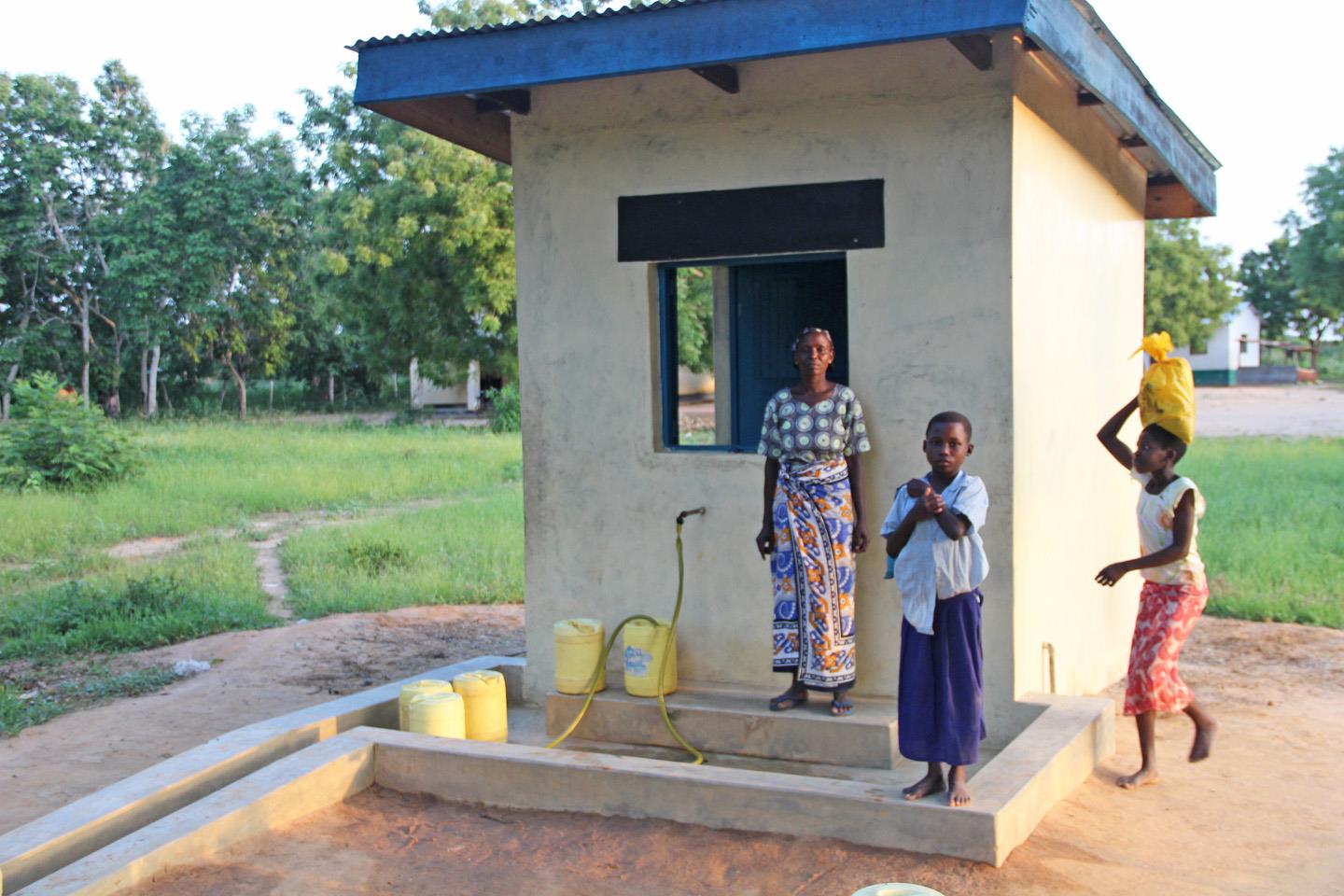
The Water Project installed 6 water stations (kiosks) that will service villages of 1500-2500 people. Before the kiosks village women and their children would walk 2 times per day to carry 22 liter containers full of water on their heads back to their villages. The water is used for everything including subsistence farmers who grow their own food. During drought periods they villagers didn’t have enough water for their maize. Now, due to the kiosks, villagers have enough water for all their needs. To get to Malindi Doug and Chuck have to fly to Nairobi then to Malindi. From it is an additional 1 ½ hours to the outer villages.
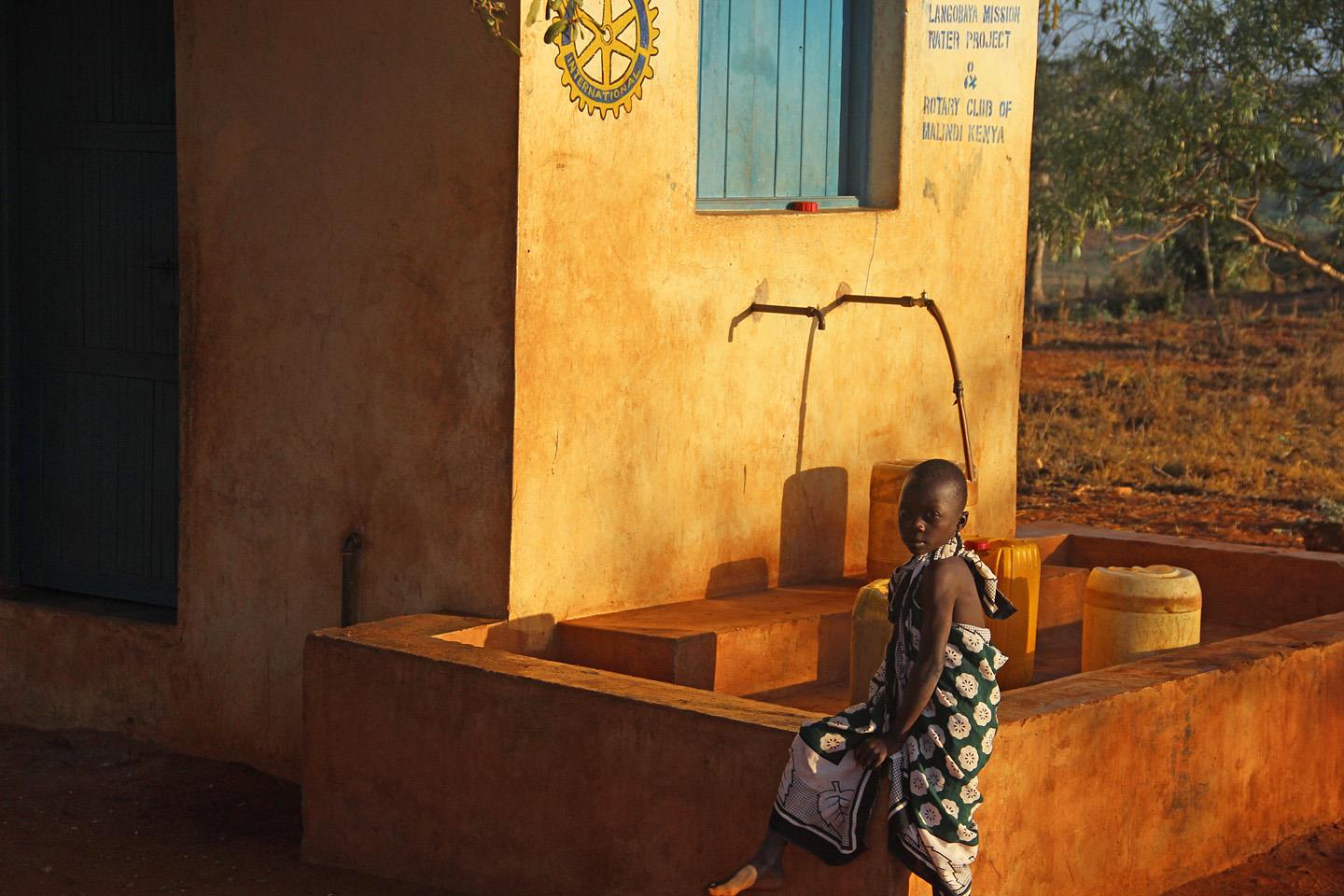
The project started with helping orphans up in Waijir. It soon became too dangerous to go to Waijir due to its proximity to Somalia, so Doug found orphans to help in Malindi. Orphan sponsorships are $38.00 per month. Sandy and Sharon are supporters of these orphan sponsorships. The money goes toward school uniforms among other things. Because African schools require uniforms, and most families can’t afford these uniforms, many children either do not attend school or drop out. The orphan sponsorships help educate these children so they can succeed in life.
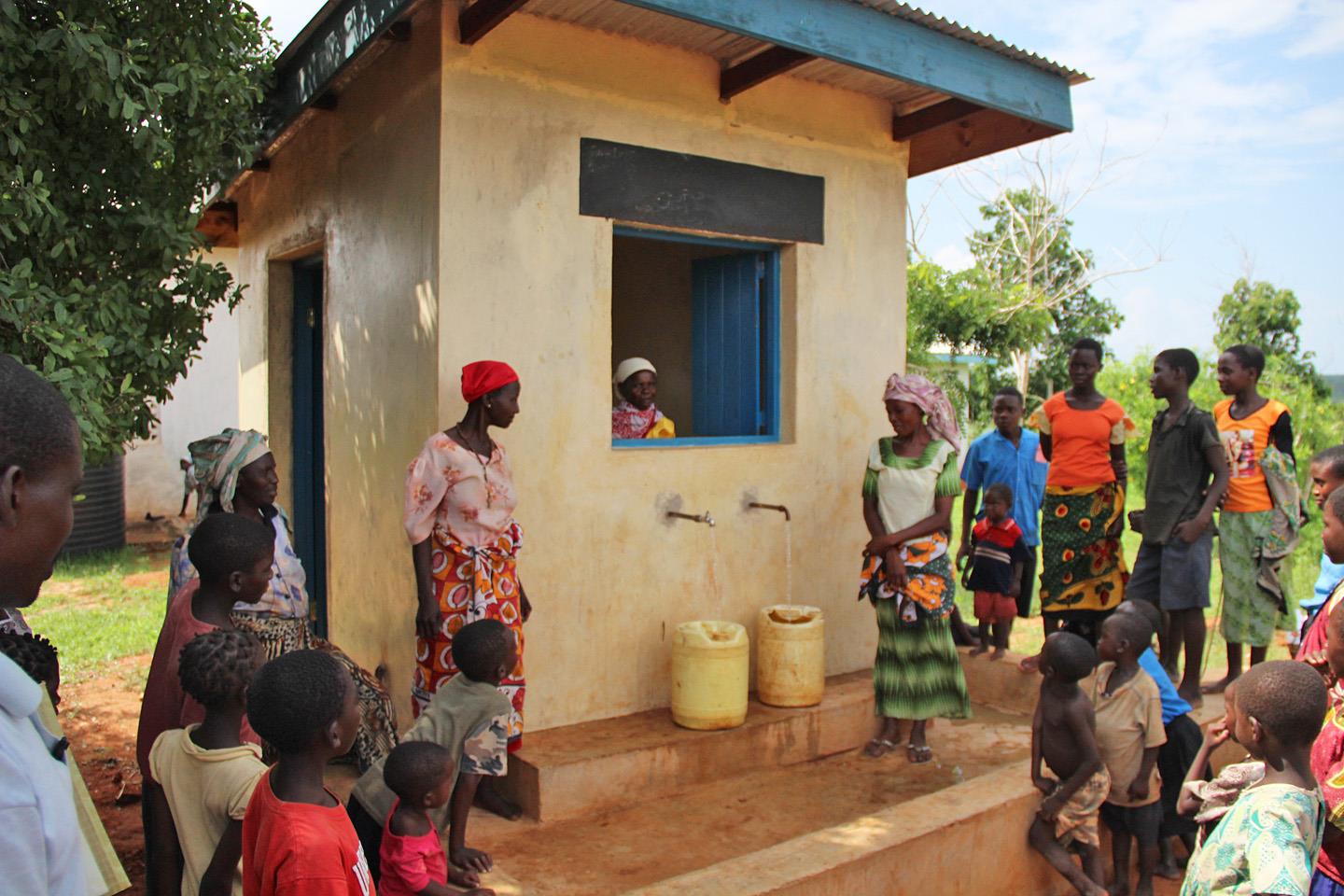
While Doug and Chuck were working with the Orphan project they saw an obvious need to bring water to these villages. The Water Project sprung from this observation. Now, instead of villagers hiking for miles to retrieve water that is supplied from rivers, it is treated and sent underground via pipes to kiosks. The villagers buy water from the kiosks. The Malindi water project started in 2009 when local villagers were hired to hand dig miles of trenches and lay pipes. The Malindi Water Company was in support of hiring local villagers to do the work vice bringing people and equipment in. Casual laborers work for someone else sporadically to make money so many villagers were eager to work for the water company. Construction began in 2010 and in 2011 the construction and hookups were completed. Because two different water companies were involved (they had 2 different water pressures) the kiosk pipes started breaking after they were hooked up. The problem was resolved when they installed water regulators.
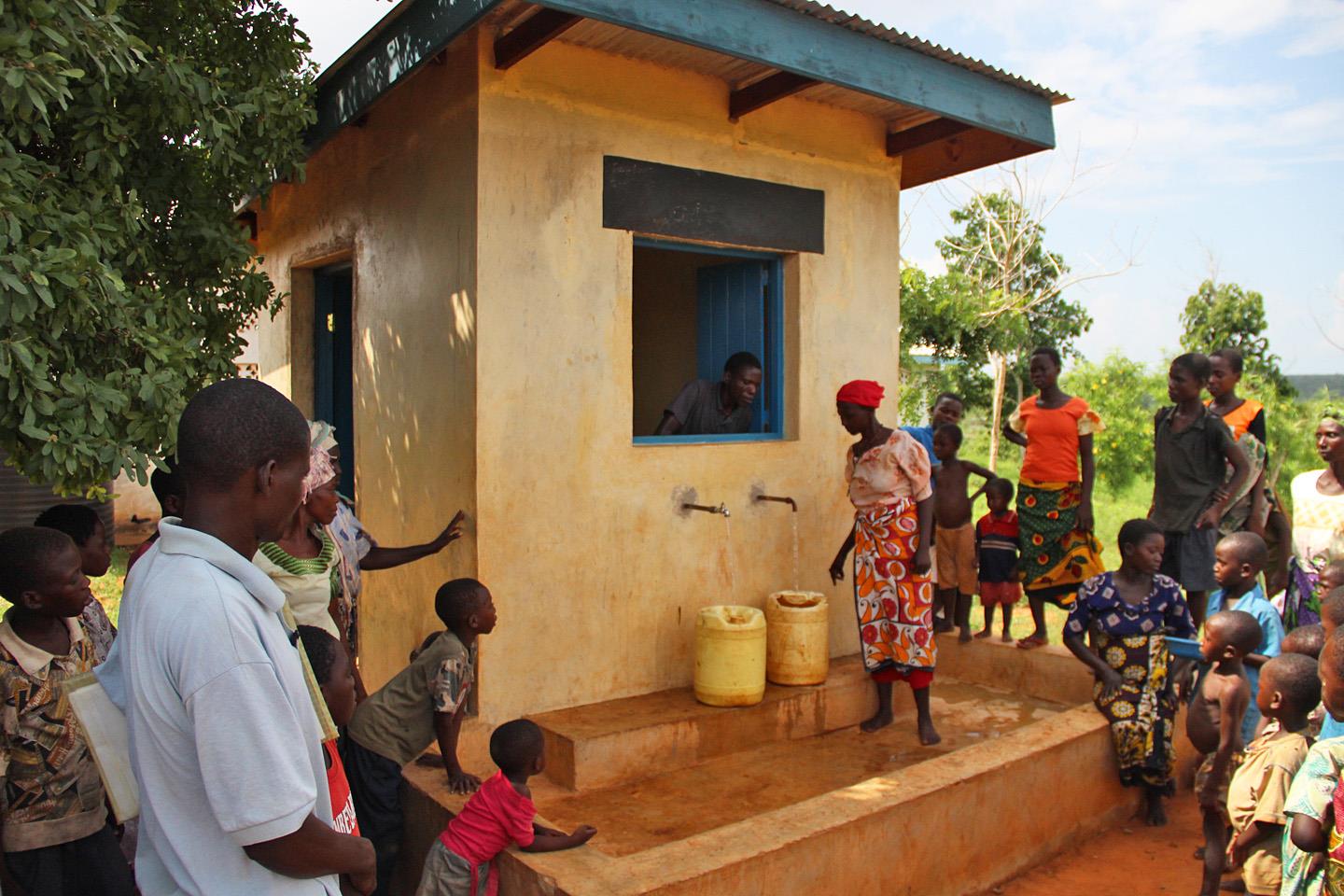
Additionally the government started digging catchment reservoirs to help villagers with raising Tilapia and water vegetables. After the kiosks were installed Rotary formed local women’s groups to manage the kiosks (5-8 women). Women were selected because they manage the families and are the most reliable and responsible members in the family. Rotary trained the women in small business management so they can collect money and pay for the kiosk metering. The net profit margin has been about 30% and the 5-8 women running the project earn between $50-$80 per month. Rotary’s stipulation for building the kiosks was that it be run by local people and used for the local community. Women also were trained in animal husbandry so they bought and raised chickens with their new income. Rotary is also building private schools and presently has 3 to 4 classrooms.
